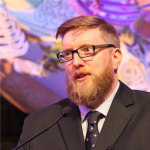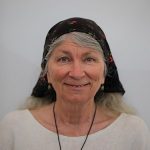First Nations
Tools and concepts for Indigenous Knowledge management in Australia and Aotearoa New Zealand.
#1 – Is Māori Data Sovereignty in the GLAMR sector improving?
There is growing awareness that Indigenous Data Sovereignty is something that should be enacted. Are GLAMR organisations doing a good job of this or not? What would respecting Indigenous Data Sovereignty look like in a GLAMR organisation?
 Speaker: Chris Cormack, Catalyst IT
Speaker: Chris Cormack, Catalyst IT
Chris Cormack (Kāi Tahu, Waitaha, Kāti Māmoe) is Technical Lead Koha Team at Catalyst IT in Wellington. He has a BSc in Computer Science and a BA in Mathematics and Māori Studies. He was the lead developer of the original version of Koha, an open source, fully featured, scalable library management system, and believes in free software and allowing users the freedom to innovate.
#2 – Making materials in and about Indigenous Australian languages discoverable
With a range of spellings and names for Indigenous Australian languages across the historical record, making collection items discoverable is challenging. AUSTLANG is a database of 1200 records of language varieties, including known synonyms for language names, information about each language and links to items in the AIATSIS Collection. AUSTLANG uses persistent alpha-numeric codes followed by a ‘string of text’ (language name) which can be changed to accommodate community preference, to maintain the identity of a language. Catalogue records can be modified to utilise AUSTLANG codes to identify collection materials in or about Indigenous Australian languages. A greater understanding of language names themselves facilitates this practice.

Speaker/s: Amanda Lissarrague & Anthony McLaughlin, AIATSIS
Amanda Lissarrague is a linguist who manages language and thesaurus data in AUSTLANG, a thesaurus of Indigenous Australian languages and people, incorporating alpha-numeric codes as persistent identifiers across a range of language names and spellings. These codes are recognised by the Library of Congress and used by many institutions and government agencies. Amanda advises the Collections Management and Development teams at AIATSIS about Indigenous Australian languages.

Anthony McLaughlin is an Assistant Director in the Collection Development and Management program responsible for Descriptive Metadata and Cataloguing at AIATSIS. Anthony was instrumental in the adoption of the AUSTLANG codes as a language source for MARC cataloguing and worked closely with AIATSIS and National Library of Australia colleagues in preparing the application to the Library of Congress. Anthony collaborated with AIATSIS Senior Linguist, Amanda Lissarrague, to present the May 2019 webinar ‘In Search of Indigenous Australian Languages’, and took an active role in a code-a-thon during NAIDOC week. Anthony is committed to strengthening practices around the Indigenisation of collections and collaborating on matters of cultural safety in resource description.
#3 – First Nations drone pilots: incorporating historical digitised collections with mapping Country and culture
An exploration of Traditional Owner expectations from ranger groups for mapping Country and how technology is being utilised in this process of caring for Country and culture.
 Speaker: Dr Lyndon Ormond-Parker
Speaker: Dr Lyndon Ormond-Parker
Dr Lyndon Ormond-Parker is a Visiting Senior Research Fellow in the Centre for Heritage and Museum Studies at the Australian National University. His research interests are information technology and Indigenous communities, community broadcast and the digitisation and preservation of community audiovisual archives, repatriation, cultural heritage.
_________________________________________________________________________________________________________________________
Registration Policy
TechEx Sessions are separately ticketed and numbers are limited. A waitlist applies.
Registering is a commitment to attend. If you are unable to attend, please advise the VALA Secretariat as soon as possible to allow a waitlisted person to attend.
Transfer
Transfer of registration can be requested by email to the VALA Secretariat (kim@vala.org.au); there is no processing fee for transfers.

